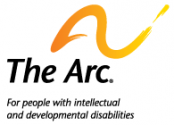 Many families of people with intellectual or developmental disabilities are familiar with The Arc. For more than 65 years, the Arc has been advocating for laws that protect the human rights of this population and offering hands-on support through its local chapters. In many ways, The Arc is a family’s resource directory in navigating real-life, day-to-day issues that affect adults with intellectual or developmental disabilities. One lesser-known benefit of The Arc is its Center for Future Planning.
Many families of people with intellectual or developmental disabilities are familiar with The Arc. For more than 65 years, the Arc has been advocating for laws that protect the human rights of this population and offering hands-on support through its local chapters. In many ways, The Arc is a family’s resource directory in navigating real-life, day-to-day issues that affect adults with intellectual or developmental disabilities. One lesser-known benefit of The Arc is its Center for Future Planning.
The goal of the Center for Future Planning is just what it says: to help adults with intellectual or developmental disabilities plan ahead so they can live as independently as possible throughout their lives. The Center does this primarily through its online “Build Your Future” tool. Adults with intellectual or developmental disabilities, or their decision-makers, are able to create a free account, enter their own personalized data, and generate a customized plan to help the individual achieve the highest quality of life possible. The tool’s focus is on the interests, preferences, and skills of the adult with an intellectual or developmental disability. The resulting future plan is intended to be updated as circumstances change and, more importantly, to be an available resource for the future.
The Build Your Future tool covers six planning areas: expressing wishes for the future, deciding where to live, financing the future, employment and daily activities, supporting daily and major life decisions, and making social connections.
1. Expressing Wishes for the Future
This part of the Build Your Future tool focuses on planning for transitions in the life of the adult with intellectual or developmental disabilities, such as the death of a parent or caregiver. The tool walks users through important considerations like housing options, the adult’s support network (both individuals and professionals), public assistance programs the adult is on, family contact information, the individual’s interests and educational level, people who should be a part of the adult’s life, and legal and financial plans.
2. Deciding Where to Live
The Build Your Future tool guides users through a series of questions to determine where and with whom the adult with intellectual or developmental disabilities should live and educates users on available housing resources. It also helps identify special needs of the adult that future housing must meet.
3. Financing the Future
Adults with intellectual or developmental disabilities should take advantage of all the financial resources available to them. To help achieve this, the Center provides information on how to use public benefits programs and/or private resources (including ABLE accounts and special needs trusts) to benefit the individual. The user may be steered to private or governmental agencies (identified through one’s local Arc) to explore assistance programs in which the adult is not now participating. Alternatively, or in combination with taking advantage of existing programs, users may be advised to consult with a team of professionals like lawyers and financial advisors.
4. Employment and Daily Activities
Adults with intellectual or developmental disabilities want to be as active and engaged with the world as possible. The Build Your Future tool presents the full panoply of resources available, be it employment, volunteering, or simply engaging in activities of interest. The resources include those available to help the individual pursue job growth and new activities for their lifetime.
5. Supporting Daily and Major Life Decisions
This section focuses on more technical and legal issues. For example, the tool provides information on decision-making options, such as whether to name a Representative Payee with the Social Security Administration (and if so, whom?) and whether powers of attorney (both for finances and health care decisions) would be useful to the adult with intellectual or developmental disabilities. Sometimes, these decisions cannot be made by the adult, and so the Center also provides information on determining the necessity of a guardianship. If a guardianship is needed, the Center can recommend local resources to assist in the process.
6. Making Social Connections
The Center for Future Planning identifies ways to establish and maintain social connections between the adult with intellectual or developmental disabilities (and her family) and other members of the community. The tool assists in finding community advocates, promoting healthy relationships, pursuing new interests and activities, and handling grief and loss at the end of relationships.
In all these areas, the future plan generates an ongoing “to-do list” of items that should be addressed as the plan is put into action. The Center has an eye on the “long game” of planning opportunities available to adults with intellectual or developmental disabilities, with the goal being to assist those adults in attaining the best, most independent quality of life possible. The support offered by the Center for Future Planning and its Build Your Future online tool can, and is intended to, last a lifetime.
To visit the Center for Future Planning and use the Build Your Future tool, go to: https://futureplanning.thearc.org/
